Written and medically reviewed by Rich LaFountain, PhD
As intermittent fasting gains popularity, one question arises over and over: Can coffee be consumed while fasting? In short, yes, you can drink black coffee while fasting — and in fact, it might even enhance the fat-burning and appetite-suppression benefits of fasting! However, it’s important to understand how additives like sugar, milk, or creamer can impact your fasting state, as well as other potential drawbacks to drinking coffee during your fast.
Read on to explore the effects of coffee on fasting and how you can incorporate it into your fasting routine.
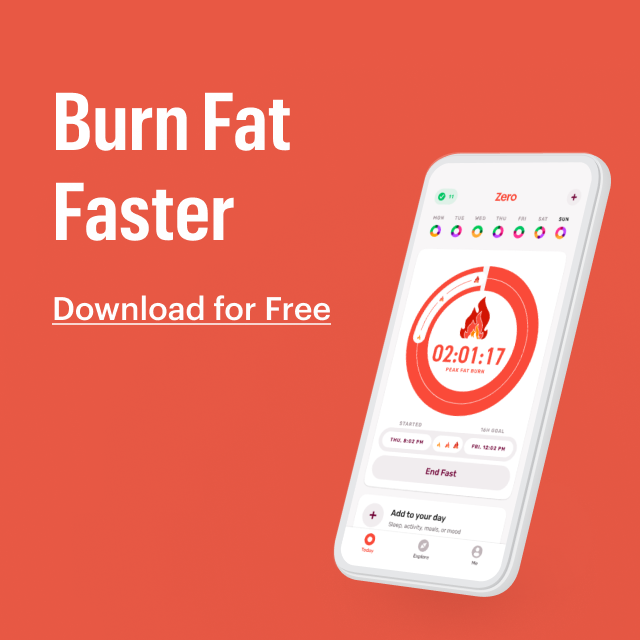
Can You Drink Coffee While Fasting?
If you’re a coffee lover who is looking into or just starting intermittent fasting, you may be wondering, “Can I drink coffee while fasting? Or does it break a fast?” Good news: Not only can you drink coffee while fasting, it may actually improve the results of your fast. “Some things go together, like peanut butter and jelly,” is an oft-quoted phrase, and intermittent fasting and coffee may be just as good a pairing (or better!).
Does Coffee Break a Fast?
The short answer is no, coffee does not break a fast. Black coffee in particular is considered fasting-friendly due to its minimal caloric content (it typically contains fewer than 5 calories per cup). Notably, black coffee does not promote spikes in blood glucose and insulin levels that will disrupt the fat-burning benefits of your fast. This may be why intermittent-fasting research protocols often allow for black coffee to be consumed during the fasting window.
However, it is important to note that some (though potentially not all) of the things you may consider adding to your cup of joe can break a fast. If you are fasting for weight loss or metabolic health, then coffee or even coffee with non-insulinogenic (insulin-spiking) additions like butter, coconut oil, or heavy cream should not break your fast. However, milk, flavored creamer, sugar, and many other sweeteners will break your fast, no matter your goals. And if your goal for fasting is to promote autophagy or gut rest, then coffee consumption is not considered fast-friendly.
The Benefits of Black Coffee on a Fast
Coffee can increase fat burning by stimulating the central nervous system, leading to the release of adrenaline, which signals the body to break down fat for energy. As an added bonus, coffee contains chemicals like caffeine, which may offer additional benefits like appetite suppression, making it an attractive option for those seeking to support fasting goals like weight loss. Moreover, the stimulatory effects of caffeine (from coffee) on the brain can provide a modest boost in energy and focus by blocking the inhibitory neurotransmitter adenosine, and thus having the potential to enhance alertness and cognitive function.
Increased Fat Burning
Without added sugars or creams, that cup of black coffee you love so much can enhance fat burning and even contribute to a reduction in abdominal fat. A recently published article from the International Journal of Molecular Sciences reported that caffeine from coffee has anti-adipogenic effects, so not only can it increase your fat-burn rate but it can also reduce your body’s tendency to store fat. On the other hand, fat-enhanced coffee, commonly referred to as “bulletproof coffee,” involves adding sources of healthy fats like grass-fed butter, coconut oil, or heavy cream to coffee. This combination provides a sustained source of energy and may promote ketosis, a metabolic state where the body primarily burns fat for fuel. While the concept of adding fats to coffee may seem counterintuitive, proponents argue that it prolongs satiety, reduces cravings, and supports fat loss by optimizing energy metabolism.
Appetite Suppression
Coffee has been recognized for its appetite-suppressing effects, making it a valuable tool if you’re fasting for weight loss. Research suggests that coffee consumption of three or more cups per day reduces several risk factors for obesity. One mechanism that may be involved in appetite suppression by coffee is stimulation of the sympathetic nervous system, which has been shown to suppress hunger. Additionally, the caffeine and other bioactive, plant-based compounds found in coffee reportedly act on pathways in the body that help regulate hunger.
Coffee (even decaffeinated) may influence the secretion of appetite regulators such as leptin, peptide YY, and ghrelin. Both leptin and peptide YY are involved in signaling satiety and help you feel full or satisfied. Ghrelin is often called the “hunger hormone” and can increase your drive to consume food. Studies suggest that coffee consumption might increase leptin and peptide YY levels while decreasing ghrelin, contributing to its appetite-suppressing effects. As a result, incorporating coffee into a fasting regimen as part of your weight-loss strategy can help you feel more satisfied.
Enhanced Energy and Focus
Combining coffee consumption with fasting can help you improve alertness and focus. Coffee contains caffeine, a natural stimulant that blocks the action of adenosine, which is responsible for signaling relaxation and drowsiness. By antagonizing or reducing adenosine action in the brain, caffeine promotes wakefulness and increases neural activity, leading to improved concentration and mental clarity. As a result, many individuals find that incorporating coffee into their fasting routine not only helps them reliably reach their fasting goals but also contributes to greater productivity and energy levels.
The Drawbacks of Black Coffee on a Fast
While black coffee is generally considered permissible during fasting due to its minimal caloric content, coffee will activate your digestive system, so coffee is not recommended during a fast for gut rest. Some individuals may experience gastrointestinal discomfort or acid reflux from drinking coffee, particularly on an empty stomach. Additionally, for those sensitive to caffeine, excessive coffee consumption during fasting periods may lead to jitteriness, anxiety, or disrupted sleep patterns.
Potential Sleep Disruptions
Coffee consumption, especially in the latter part of the day, can lead to sleep disturbances due to its stimulating effects. By blocking adenosine receptors in the brain, caffeine in coffee can interfere with the natural onset of sleep and reduce sleep quality. To minimize the risk of sleep disruptions, individuals should consider limiting their caffeine intake, particularly in the afternoon and evening hours. Some research suggests that the ideal timing for caffeine intake is at least 9 hours before your target bedtime.
In addition to drinking your black coffee earlier in the day, opting for decaffeinated coffee or switching to alternative beverages like herbal tea can be beneficial for those sensitive to caffeine. Also, establishing a consistent sleep schedule and practicing good sleep hygiene, such as creating a relaxing bedtime routine and minimizing exposure to screens before bed, can help mitigate the potential impact of caffeine on sleep.
Possible Digestive Issues
While coffee is enjoyed by many for its flavor and stimulating effects, some individuals may experience digestive discomfort after consumption. The acidity of coffee can irritate the lining of the stomach and may lead to symptoms such as acid reflux, heartburn, or indigestion, though the research is mixed. Additionally, coffee’s laxative effect, attributed to compounds like caffeine and chlorogenic acids, can stimulate bowel movements and lead to diarrhea or loose stools in some individuals, particularly when consumed in large quantities or on an empty stomach. To mitigate these digestive challenges, individuals may consider opting for lower-acid coffee varieties, such as cold brew or coffee blends specifically marketed as “stomach-friendly.” Moreover, consuming coffee alongside food, once your fast has ended, can help buffer its acidity and reduce the likelihood of gastrointestinal discomfort.
May Hinder Autophagy
While coffee is often consumed during fasting periods for its potential benefits, it’s worth noting that coffee consumption may interfere with certain cellular processes, including autophagy. Autophagy is a natural cellular recycling process that helps remove damaged or dysfunctional components, thereby promoting cellular renewal and overall health. Some research suggests that coffee consumption, particularly the consumption of caffeinated coffee, may suppress autophagy by activating what’s called the mammalian target of rapamycin (mTOR) pathway, which is known to inhibit autophagy. This inhibition of autophagy could potentially diminish some of the health benefits associated with fasting, such as cellular rejuvenation and detoxification. However, some in vivo studies suggest that coffee may actually induce autophagy, at least in animal models.
It’s essential to consider that the impact of coffee on autophagy may vary depending on factors such as the type of coffee consumed, the amount consumed, and individual differences in metabolism. Further research is needed to fully understand the interplay between coffee consumption, fasting, and autophagy, and how individuals can optimize their fasting routines to maximize autophagy benefits.
Individual Tolerance Can Vary
Individual tolerance for coffee and caffeine can vary widely among people due to factors such as genetics, age, weight, metabolism, and overall health. Some individuals may be able to consume multiple cups of coffee without experiencing adverse effects, while others may feel jittery, anxious, or experience gastrointestinal discomfort even after consuming a small amount.
Moreover, certain medications or medical conditions can influence how the body metabolizes caffeine, affecting an individual’s sensitivity to its effects. It’s essential for individuals to pay attention to their body’s response to caffeine consumption and adjust their intake accordingly. Those who are more sensitive to caffeine may benefit from choosing decaffeinated coffee or opting for alternative beverages to avoid unwanted side effects. Additionally, it’s advisable for individuals with underlying health conditions or those taking medications to consult with a healthcare professional before making significant changes to their caffeine consumption habits.
How Coffee Additives Impact Your Fast
For most people who practice intermittent fasting, coffee won’t break your fast if you’re interested in weight loss or metabolic-health gain. However, additives like sugar, creamer, or flavored syrups could potentially break the fast by stimulating an insulin response.
Coffee with Milk or Cream
Coffee with milk may break a fast due to the addition of calories and macronutrients, potentially stimulating an insulin response and interrupting the fasting state. Additionally, the digestion of lactose, a sugar found in milk, may further impact insulin levels and hinder the metabolic processes associated with fasting. While unsweetened cream does contain calories and fat, a minimal amount added to coffee will not break a fast if your goal for fasting is weight loss. The reason is that the low carbohydrate content of cream is unlikely to significantly impact insulin levels or disrupt the metabolic processes associated with fasting.
Coffee with Sugar
Coffee with sugar is certain to break a fast due to both the caloric and carbohydrate content of sugar, which can stimulate an insulin response and disrupt the fasting state. Additionally, the rapid absorption of glucose from sugar can quickly elevate blood-sugar levels, negating the metabolic benefits of fasting such as ketosis and fat burning. After all, sugar is an immediate energy source, so drinking coffee with sugar defeats the fat-burning effects of abstaining from food.
Coffee with Butter, Coconut Oil, or MCT Oil
Incorporating butter, coconut oil, or MCT oil into your fasting routine can offer several benefits, including promoting ketosis — a metabolic state where the body burns fat for fuel — due to their high fat content and minimal impact on insulin levels. The medium-chain triglycerides (MCTs) found in coconut oil and MCT oil are readily converted into ketones by the liver, providing a quick and sustained source of energy without causing significant insulin spikes. Additionally, the combination of fats and caffeine from “butter coffee,” often referred to as bulletproof coffee, can enhance satiety, prolonging the fasting window and supporting metabolic flexibility.
Coffee with Artificial Sweeteners
Adding artificial sweeteners like aspartame or acesulfame potassium to coffee while fasting should be avoided due to their potential to stimulate insulin release despite being low in calories. Research further suggests that artificial sweeteners such as aspartame or sucralose may disrupt the gut microbiota and interfere with metabolic processes, potentially undermining the metabolic benefits of fasting. Consumption of artificial sugars can also perpetuate cravings for sweet foods, making it harder to adhere to fasting protocols and maintain stable blood sugar levels.
Natural sweeteners, such as stevia or monk fruit, do not cause a glucose or insulin spike, and research suggests they are likely okay to consume for metabolic and weight-loss purposes in small amounts. However, if your goal is gut rest, all non-nutritive sweeteners, natural and artificial, should be avoided.
Tips for Drinking Coffee While Fasting
When drinking coffee while fasting, consider timing your consumption to maximize its benefits, choose a type of coffee that suits your preferences, and be sure to balance coffee consumption with adequate water intake to maintain proper hydration levels throughout your fast.
Timing
When incorporating coffee into fasting routines, consider timing to maximize the benefits of your cup of joe. Consuming coffee earlier in the fasting window can help curb hunger and enhance mental alertness during the initial stages of fasting. Also consider spacing out coffee consumption throughout the fasting period rather than consuming it all at once to sustain its effects and avoid potential crashes. However, be cautious about consuming coffee too late in the day, especially if you’re sensitive to caffeine, as it may disrupt sleep patterns. Ultimately, you want to listen to your body’s cues and adjust your coffee consumption timing based on your individual needs and tolerance levels.
Type of Coffee
Coffee comes in a variety of forms, each offering unique flavors, aromas, and brewing methods. Espresso, a concentrated form of coffee brewed by forcing hot water through finely ground coffee beans, is known for its bold flavor and rich crema. Drip coffee, made by pouring hot water over coarsely ground coffee beans in a filter, produces a smoother, milder taste and is a popular choice for everyday consumption. Other types include French press coffee — where coarsely ground coffee steeps in hot water before being pressed through a filter, resulting in a full-bodied brew — and cold brew — made by steeping coffee grounds in cold water for an extended period to produce a smooth, less acidic flavor profile. Specialty coffees such as cappuccinos, lattes, and macchiatos incorporate espresso with steamed or frothed milk, offering a wide range of flavor combinations and textures to suit various preferences. However, these milk-containing varieties of coffee will break your fast, so make sure to only drink them during your eating window.
Hydration
While fasting, coffee can contribute to hydration by providing a source of fluid intake. Despite its mild diuretic effect, the water content in coffee helps replenish fluids lost through respiration, sweat, and other bodily functions. However, you need to balance coffee consumption with adequate water intake because relying solely on coffee for hydration during fasting is unlikely to be sufficient. Drink water alongside your coffee to maintain hydration levels and support overall well-being throughout the fasting period.
Conclusion
In a nutshell, coffee can be a beneficial addition to your fasting routine, particularly when consumed black, in moderation, and early in the day. It can enhance fat burning, suppress appetite, and boost energy and focus, making it a valuable tool for those fasting for weight loss or metabolic health. However, it’s essential to be mindful of additives like sugar, milk, or creamer, which can break a fast by stimulating an insulin response; when you drink it, since late consumption can affect sleep; and how much water you’re also drinking (because coffee alone will not meet your hydration needs!). By understanding how coffee affects fasting and making informed choices about its consumption, you can optimize your fasting routine to achieve your health and wellness goals.
Ready to start using Zero? Take the quiz or download the app today.
- Debunking 3 Myths Around Fasting and Thyroid Health - April 15, 2024
- Breaking Down Fast Breakers: How to Tell If Something Will Break Your Fast - March 4, 2024
- GLP-1s and Weight-Loss Medications vs. Lifestyle Interventions: What’s Right for You - February 5, 2024
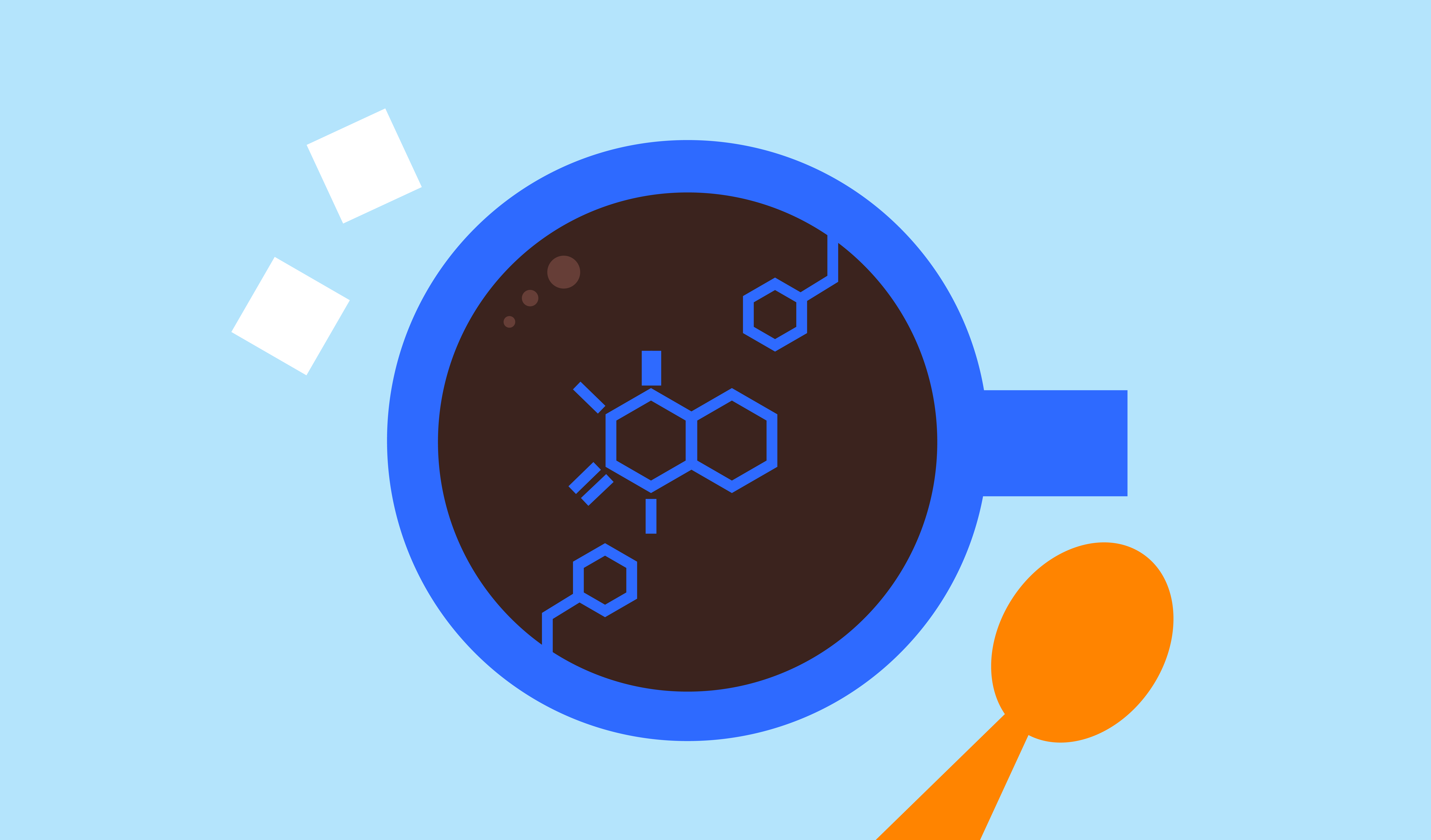

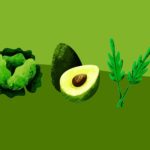

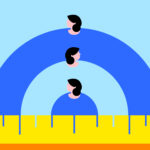
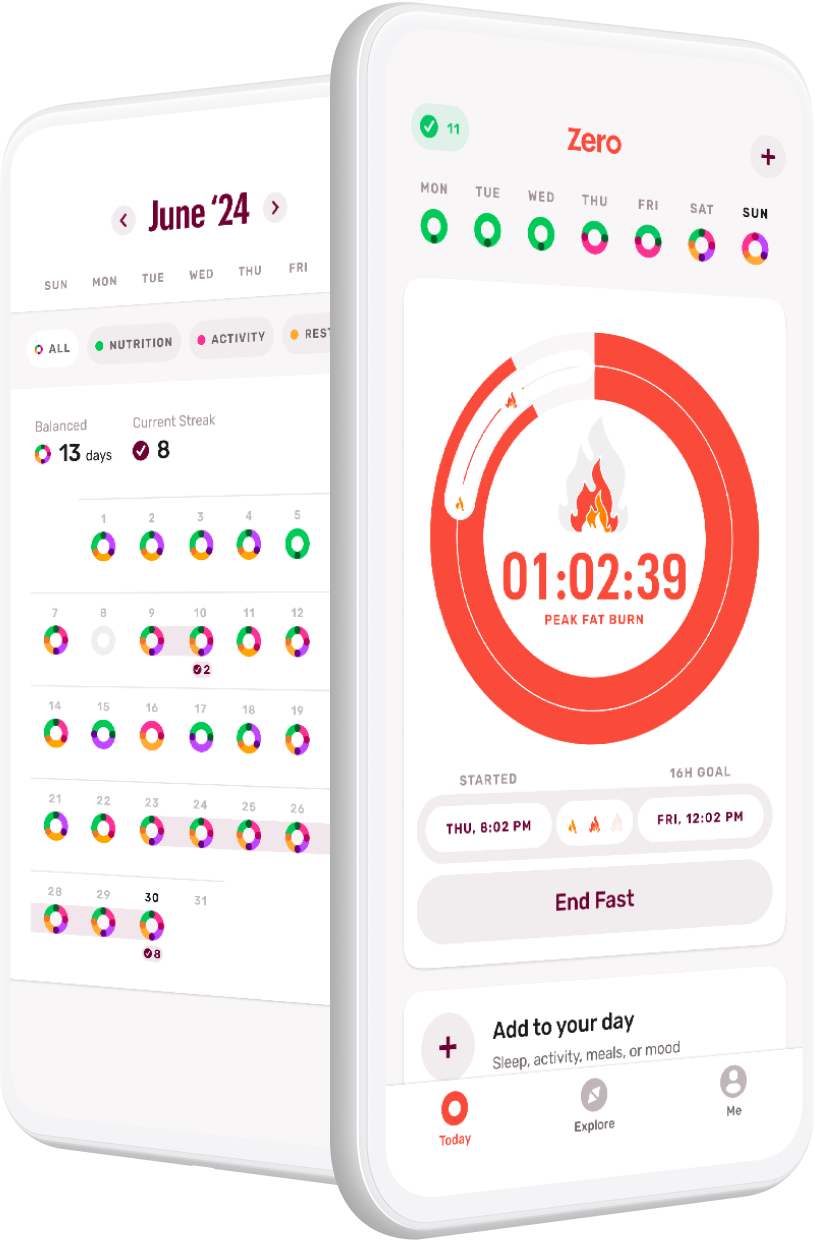
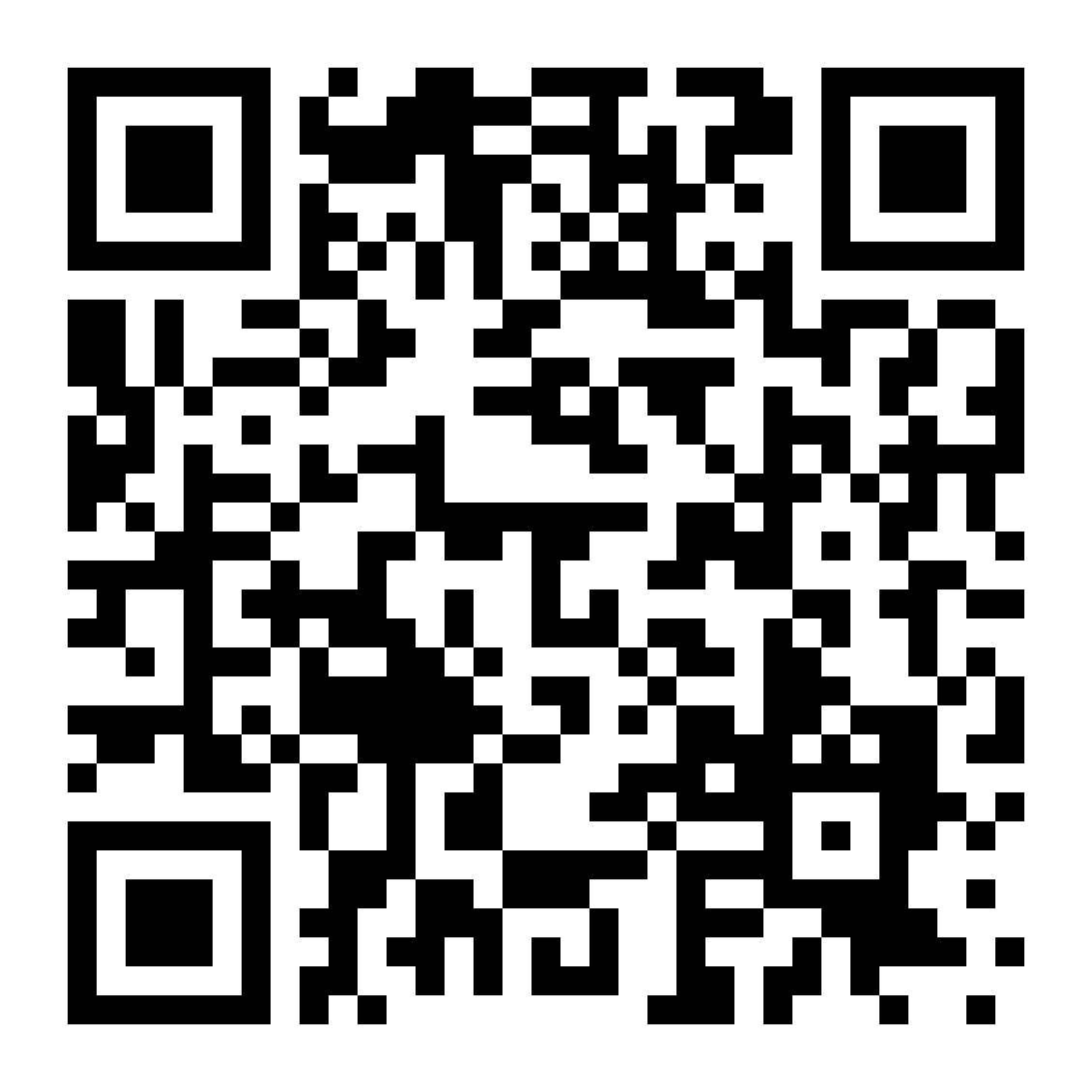
I really enjoyed this article. Thank you.
Great article! I wonder about this all the time!!!!!
I have read so many studies about adding Stevia to your coffee or tea could you advise if drinking black coffee or tea with a package of stevia will break a fast?
I’ve read that stevia will raise insulin levels even though there are no calories. Referenced in the book “The Obesity Code” by Dr. Jason Fung.
Does Chlorella and spirulina break my fasting ?
2 small spoons right after the wake up
of Biotona spirulina and chlorella
Thank you for the information
Thank you! This was very helpful to know since I love my coffee/bulletproof coffee!
The articles are so helpful. This one especially breaks down the ways to consume coffee and it’s impact on the fast.
What about black coffee and straight collagen?
Yes, I would like to know this also.
I recently watched one of Dr. Berg’s fasting videos where he explicitly said collagen is a no-no. I can’t remember what it has in it that breaks the fast but apparently it has a lot of something, maybe protein, in it.
Good question. That’s what I do occasionally. It is a lot of protein though which would inhibit autophagy.
Thank you for dividing the purposes for fasting into three distinct categories. The answer is, it depends. That answers a lot of questions for me.
I wanna ask about coffee which is prepared by Almond milk, does it break my fasting? ( weight loss and metabolic health)
Sugar free almond is fine, the general rule is more than 50 calories of something will kick you out of ketosis
Yes – thank you for this article! I appreciate your specificity! I have been trying to figure this out for a while. I’ve heard the ’50-calorie rule of thumb’ – however I assume that does not apply to butter or MTC oil – because it’s about the carb count -correct?
Nice article. Answer my questions
Can one drink coffee with sugar?
NO. Not if you want any benefits.
No sugar is a carbohydrate and sets off the release of insulin which is completely besides the point of fasting, longevity etc
What about those that don’t drink coffee and only drink tea? For instance green tea.
This is exactly the info I have been searching for. Thank you!
Hi!
If I drink my coffee with half cup of unsweetened almond milk (very low carb, less then 1G and only 15 calories) so it will break my fast of ” gut rest”?
What about almond milk in tea? Does that interfere in weight loss while fasting?
Interesting. What about almond milk coffee?
The way you’ve described coffee with cream (i.e. ~2Tbsp.) would suggest that it doesn’t cover milk-based coffee styles that we drink a lot of here in Australia, e.g. cafe latte, cappuccino, flat white — each contains a high ratio of milk to water. Would it be to correct to assume that a standard latte of ~220mL — of which at least two thirds is milk — would break a fast for metabolic health/weight loss reasons?
I think about it as breaking my fast. Really any calorie macro rich and or something that will spike my insulin I stay away from. Break down the drink you just described and look at it as multiple parts. In the recipe I read on how to make a latte it said about 6 oz of milk for every shot of espresso. So lets say you have 2 shots and 12 oz of milk. 18 calories an oz is 216 calories. Would you drink 12oz of milk during your fasting window? I do IF for the added benefits of autophagy ,mTOR, increased cardiovascular performance, be more insulin resistant, and I also think it helps me think about what I put in my body.
Due to the protein I bet it would. While milk has a lot of protein and carbohydrates.
Currently drinking my long black 😻
Thank you for providing this informational piece – I notice myself when I consume too much coffee there is an acid reflux evident.
Heres to longevity! 🙏
Hi, can i eat any kind of foods after intermittent fasting?
Or do i need to watch calories and strict on diet after i finish the intermittent fasting?
Because i have no idea on what to eat after my intermittent fasting like 20:4
What about soy milk in coffees??
I would like to see soy and almond creamer added to that list to know what type of impact it has along with my morning coffee.
Depends on the sugar/carbs in those milks. Look at the label. The point is to stay away from carbs when fasting because carbs/sugar trigger the release of insulin
Good to hear! I usually drink black coffee and always was wondering, does it break or not my fasting. Thank you for the good news 👌
Does drinking tea with milk in the morning break the fast ?
Thanks for this review. Since I am vagan my question is: What about coffee with oatmilk (or soybeanmilk)?
Great article and helpful but somewhat left me wanting more
Gut rest of metabolic-rest fasts are pretty much the same thing – I am unsure it addresses the coffee breaking of tyebfast I would have preferred, especially when the verdict is ‘likely’…
It would be helpful to have one on Tea and different types of.
Nice article, really succinct and just enough science and not too much! 😍😎
What about lactose free products like soya milk, coconut milk etc etc
What about tea and almond milk
My question is why use coffee at all?
What about the use of plant based milk I.e. almond milk in coffee?
Hello,
Thanks for the great efforts you have done to ease my concerns.
I agree with you about black coffee, it really doesn’t break the fast. But bulletproof coffee and cream coffee have complex compounds require more insulin.
Thanks for the article. May I ask an off topic question, I’m not sure where to ask it so sorry in advance? Is there any proven benefit/difference between the different fasts explained here and some religious fasts where you’re not allowed to eat nor *drink* anything from dawn to dusk?
I have read around but people usually don’t mean complete abstinence when they talk about fasting so it’s hard to find an answer. Is depriving the body of liquids as well as food any good/better?
Thank you very much.
This is very helpful. I try to do 22/2 fasting daily but I still have my morning coffee with MCT in it hoping it doesn’t break my fast (weight loss being the goal for me). Very happy to know it’s unlikely to 🙌🏻
I’ve listened to this topic be explained 4-5 times by scientists and doctors but this is bar far the clearest and most useful information I’ve seen.
Awesome post. I fast 18hrs in a row. Most days. The occasional black coffee gets me through! My strength and nutrition coach has already told me this. It’s nice to have it reconfirmed! Thx!
Thank you for clearing this up!!! 🙇♀️🙇♀️🙇♀️
I’m so thankful for this information, I don’t drink any coffee however now that I know I’ll have a cup or 3 per week.
Would this be the same for hot tea/hot tea with tsp of honey? Also curious about a 4oz shot of something like beet kvass?
Does honey with coffee break fast?
What about adding Stevia to black coffee? Will that break a fast?
Hi!
Great news. But, what about Tea drinkers? I am particularly partial to black tea with 3 spoonfulls of low fat milk + sucralose (and I’m going for weight loss).
Thank you
Very informative. When fasting on my regular 16:8 cycle I just stick to black. Why risk it.
But thanks for all the extra info to think about.
Hi! If I add regular sugar to the black coffee will break my fasting?
Yes!
Does coconut milk/creamers or alomnd milk/ creamers process the same as dairy cow cream for metabolic fasting?
Please explain to me about flavored coffee such as black pumpkin spice.
This was a great article. I’m curious where the Laird Superfood creamers would fall. Based on the ingredients, do you think they would fall in a similar category as the butter coffee?
Thank you
Thank you for this! I started the circadian fast yesterday and was just wondering if coffee had any effect. I normally take it with a tbsp or two of half & half. Since I’m fasting for metabolic/weight loss reasons, I can have that cup of coffee for when I have to be at work at 5 in the morning. 🙂
What about black coffee + swerve sweetener (erythritol)?
Great summary breakdowns plus scientific backup. Very helpful article!
This is the best summary of this question I’ve seen.
Great info! I like that the article addresses the different “genres” of coffee and how they impact different fasting goals. Thank you!!!
Will you do something similar for HMB to eliminate catabolism whole exercising in a fasting state?
Wonderful. Another question does Monk fruit break fast
No! In small quantities of course!😊
What about non dairy milks??
Oat, nut, etc…
Thank you! This was a very helpful article!!!!
Very informative, good article
This answers a lot of my questions. Thank you for the article!
I don’t understand why mct oil would break a fast (for autophagy/longevity) but cream would not. Is it the calories? What about coffee with 1-2 teaspoons of mct oil (much less than the amount you list)? Would this limit autophagy? That is my main reason for fasting. Thank you.
I fast 18-20 hrs per day for autophagy and long term health (ie. Prevent diabetes, dementia, Alzheimer’s, any neurological disease). I’ve learned that a “clean fast” means not releasing insulin during the fast! Is this correct?
But wouldn’t that trigger your body to want to eat if you added cream?
I drink coffee every morning. I drink 2-3 cups of coffee with 2% milk and truvia sweetener.
I love to fast. I have lost 60lbs and I am determined to keep it off.
I believe fasting will be the tool along with portion control as well as exercise (walking) 8K daily—-will enable me to maintain my weight loss.
What about caffeinated tea, decaffeinated tea, or herbal teas with no caffeine at all? Thank you!
Awesome info thanks
Great breakdown, very helpful. So now, what about 100% coconut milk in coffee?
I’m extremely glad to see this new article!! I have been wondering about this, as coffee w a small amount of milk is the only break in my fast each day. I have also bern wondering if 1 diet coke (I know..chemicals!) 🙂 can make a negative difference in my fasts.
Would also be very interested to hear how to get through a tough weight plateau. I perform various hours of fasting daily w 16-21 hour fasts during the work week and 13-15 hour fasts on the weekends. And I do a strong weight/floor/cardio program 3 days weekly, but my weight is the same for 2 months!! Very frustrating! Thank you so much. Lucy Poole, San Francisco, CA
Thank you for this article! This app has been so helpful just as a way to keep me honest about when I start and stop putting things in my mouth. The addition of helpful information makes Zero even better.
I think this is the primary discussion when it comes to fasting! 20 something years ago, during my bodybuilding days, I did my cardio in a fasted state first thing in the morning but would always drink black coffee before heading out.
Does Splenda with coffee break a fast?
Any studies on coffee with unsweetened almond milk ( 1 cup which is 30 calories)
What about tea with honey
This obviously breaks a fast. Honey is sugar. Sorry, hon.
This is good to know.
Does tea have the same effect?
Excellent info. Always has been my question. I use 36% Avalon dairy whipping cream in my coffee. 1-2 Tablespoons per 8 oz cup. Sometimes black.
Thanks love this app and all the improvements.
A dash of whipping cream is my favorite in a dark roast!
Thanks for info on coffee breaking a fast
I also agree with your findings, for me a 18+ hour fast is just easier than bringing a lunch to work.
Anyway I have coffee in the morning which also helps curb hunger. Question is I do 18:6 up to a 23 hour one (dinner to dinner), for my gut while my black coffee breaks my fast, how long until it “resets” assuming no other intake. Do I lose an hour of my fast? Or is it just like I ate food?
Good article. Thanks for your help understanding.
Thx for info, but I still have to have my coffee in the morning.
Does coconut water break a fast? I’m guessing yes since it has calories and sugar
I was interested as soon as I saw this post in my notifications, but already concluded I would continue drinking coffee even if the article concluded coffee breaks a fast.
Truth is, technically it does break a fast. Your body must metabolize it, simply put. Am I going to stop drinking coffee, no. Will I continue to 16:8 fast, yes.
Can you have coconut oil in your coffee without breaking your fast as well?
Can we please post the sources for the articles? That would be great. As I forward these out to people to try to encourage them to fast they like to challenge data so providing sources helps with that effort. Thank you
Thank u this was so helpful
Thanks for the info
This really helped
Super relevant and well written.
Thank you!
I think you were reading my mind, I’ve been wondering about coffee! Especially with a little milk or cream (i’ll pass on the butter🤭) Great knowing coffee + cream is generally OK for both metabolic & longevity fasting; I’ll look into herbal “coffee” or tea for gut rest. thank you so much for this article.
I fasted for over a year (for weight loss) and have had coffee and cream throughout, every day. In fact that’s what has helped me. I’ve lost 22kg and I’m now back to my ‘fighting fit’ weight when I was in the Army in my early 20s.
Is drinking water with vinegar breaking the fast?
Does Maple sugar, which is very low in calories break the fast? Does my coffee with a splash of homemade almond milk (11cal) and 1 tsp Maple sugar (11 cal) for a total of 22 calories break the fast because of the sugar? I’m confused because of the general guideline of 50 calories. Does sugar in any amount of calories break it? Thx
Does tea break a fast? No sugar or cream just tea? ☕️
Anyone looking to ditch cream and sugar, try Starbucks Nitro Brew. I love it.
Is there anywhere we can get a list of references for articles like this so we can check out the studies discussed?
Does anyone know if using coconut milk in coffee will break a fast? I use about one tbsp/ cup and will have two cups of coffee.
In terms of effects on insulin levels, does vegetable broth (with sodium) break the fast?
Such a helpful article!! I hope I can find a similar one on tea and herbal tea.
Hi! Thanks for this useful article. Where do chicory beverages stand in respect to breaking the fast?
Hi! I’m always curious if drinking coffee (with added almond/cow milk that make up to 20-30 kcals per consumption) while on a fasted state, does it break a 24hr fasting window if consuming 2-4x? Thanks!